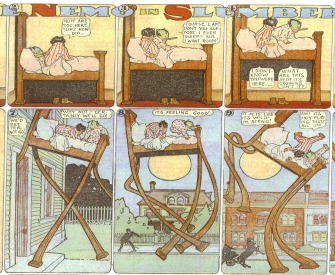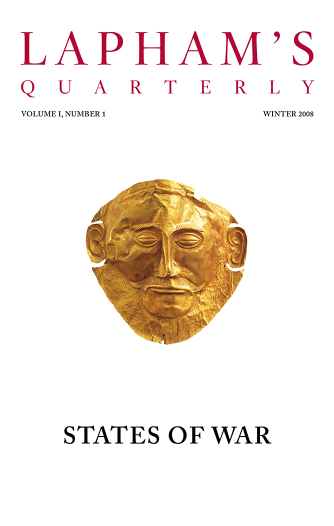September 20
It is very strange and frightening: all the boys seem to me to be grown men and I, a veritable minnow in a sea of Tritons, but I suppose really they are quite bovine and regard me much as cows regard human beings—as their natural master. I wonder! I confess I am in a panic about my ability to keep order. On several nights in the “vac,” I had nightmares of classes of unruly boys refusing to obey me, shouting, throwing things about, and generally making nuisances of themselves and a fool of me.
My first impressions of Radchester are not very comforting. It is like coming to a desert island to be pitchforked out at a wayside station miles from anywhere, with only the sea to the east, and flat dike lands to the west, north, and south. There are no houses within sight. Certainly, there is nothing to distract one’s attention from one’s duty: outside the lodge gates, all is barren. The first thing for me to do is to furnish my rooms. Alas, where am I to procure the means to do this?
At present in my sitting room there is nothing but a frayed carpet, a few rickety chairs, a table, unstable on its legs, and an enormous bookcase and cupboard combined. My bedroom is ugly, bare, and damp, with no fireplace. Apparently, they encourage us to be spartan in our mode of living here. How different from the Oxford of three months ago.
There is something monastic about the life here: only one other master except the Chief is married; women are obviously not encouraged.
In chapel I saw the whole school for the first time. I was exceedingly nervous and imagined myself to be the cynosure of all eyes. I thought that they were all taking stock of me and sizing me up. I must remember to be strict from the very beginning. The start is everything.
September 27
I am gradually getting used to the routine. Certainly, the breaking of the ice was very trying. Luckily, I had prepared my lessons carefully before I went into form, so I had plenty to say, which prevented my extreme nervousness from being too apparent, and I punished two boys heavily for talking while I was trying to teach. On the whole, most of them appear to be tractable. What does amaze me is their abysmal ignorance.
For the first few days, I was talking over their heads the whole time. In mathematics I went too fast. In English I took it for granted that they knew something about the subject; I am gradually finding out that they know nothing. What is worse, only a very few of them want to know anything. They exhaust all their energies and keenness on games; they have none left for work. It is looked upon as a gross breach of good form to take anything but the most perfunctory interest in class. I find that I am falling into the most insidious of traps. I am picking out favorites. There are two boys, Benbow and Illingworth, both in my English set, who have shown up essays quite outside the common: they care about things; they read; they express a novel point of view; they are rebels against tradition. I have given them the run of my rooms and implored them to borrow what books they like from my shelves and to come to tea whenever they like.
A week of this life has taught me quite a number of useful things:
(1) That it is quite easy to keep order. A number of men here get persistently “ragged,” but that seems to me to be due to their lack of humor, their uncertain temper, and their misunderstanding of the boy mind.
(2) I hate having to correct work at night. It is merely a mechanical drudgery and does the boy no good, for he does not strive to understand a mistake unless you correct it while he is with you, and one would be far better employed reading. Correction of exercises must have been instituted to prevent masters from getting into mischief in their idle hours.
(3) I dislike compulsory chapel. I like services when I do not feel bound to go; they become merely a meaningless jingle of words when one is forced to attend when one is not in the mood.
(4) I love playing “footer” with the House every day. I have got to know already quite intimately a number of boys whom I should have regarded as wasters in form. This seems to me to prove that a master should share so far as he can in every activity in order to try to get at the point of view of the boys from every angle. I have therefore joined the Corps, the Debating Society, and the choir.
(5) I object intensely to the mark system. It inculcates selfishness, destroys any chance of getting any cooperative spirit in a form, and is thoroughly immoral. It tends to make boys work from a mercenary motive: they think of nothing but rewards and punishments; they even cheat when they get the chance in order to rise to a high place in the week’s order. These orders bother me. Every Saturday night we have to collect all sorts of marks from other masters, scale and readjust them, and produce an order, which takes up about two hours of valuable time. I don’t mind giving up time to any useful end, but I do resent doing so for a senseless one.
November
I dined with the headmaster last night and found myself quoting from a new book on education. Just before I left, he took me aside and said, “The less you read about education, the better. All this newfangled talk about new ideas cuts at the very roots of the great tradition on which the public schools were built up. I never engage a man who has taken a diploma in the theory of education; he can never keep order, he can’t teach, he makes the boys rebel against their lot and is altogether very dangerous. I like your keenness, and I think you have made a good beginning, but I warn you now against thinking that there is any reform needed and suggest that you read no more upon a subject which you are called upon to practice, not to theorize about.”
I attempted a defense, but he refused to listen. Patting me gently on the back, he said, quite kindly, “When you are my age, you’ll see the truth of what I’ve been telling you: Youth is always in a great hurry to bring about the millennium. It never realizes that no millennium can be brought about by merely destructive criticism. Remember that all these writers are outside the profession and are writing in total ignorance of the conditions under which we labor.”
He succeeded in making me feel very arrogant, very youthful, and very much of a fool.
After all, he has some right on his side. Boys do understand the system of marks and of punishment, and I suppose the way of least resistance is the best. Anyway, it is far easier to make a boy work through fear than it is through love of the work; to rouse enthusiasm in the work itself is an exceedingly arduous business. The difficulty is that I hate the idea of caning a boy almost as much as some of the staff relish it. They satisfy a sort of bestial lust by lashing a small boy and hearing him yell. They would be horrified at the suggestion, but I am certain that this is true. One has only to watch a man’s eyes when he gives an account of some of his more successful efforts in this direction. On the other hand, I firmly believe that there is a type of boy who can understand no other form of treatment. I only wish such types would not come under my jurisdiction.
December
Now that examinations are upon us, I have been attempting to revise my mathematical and English work, with appalling results. My math sets appear to have learned nothing; just a glimpse here and there of an idea, all mixed up with the most amazing nonsense. I must have gone too fast. There are boys who go again and again over the same ground, term after term, working out quadratic equations, formidable and unwieldy algebraic fractions, solving problems about triangles, parallelograms, and circles quite mechanically and perfectly without the ghost of an idea as to what they all mean or what bearing they have on practical life. They are, if questioned, content to talk about “mental discipline” and “the more odious a task is, the better it is for one’s education” in a manner unbearably priggish and foolish.
If a boy can work out a hundred examples correct to type, most of us seem to think that we are teaching him something. On the contrary, I believe that the only point in mathematical teaching is the training of the mind to think logically and exactly, and to detect all vague and shallow fallacies in argument or writing.
According to this theory, the better a boy was at mathematics, the better he would be at English, whereas the truth is that the able mathematician is rarely able to express himself in writing at all, and certainly is not remarkable for simplicity or direct reasoning power in his essays. It never strikes us that if a boy is capable of working out an intricate equation, he ought to be able to build up a paragraph of carefully connected sentences, all sequent and working to some definite solution or proof.
I am coming to the conclusion that all true education is a striving after Beauty, and what does not actively pursue this end is a waste of effort.
It is not strange that the cult of Beauty is neglected in such a place, for where is Beauty to be found? The answer I find within my rooms: only in my books and my few chosen friends among the boys can I rid myself of the discontent which is so persistently seething within me.
From A Schoolmaster’s Diary. Traherne went to work at a public school after finishing his education at Oxford, but eight years later he was fired for what he describes as “tactlessness.” Hoping to salvage his reputation, he gave five volumes of his diaries to his friend Stuart Mais, an author and broadcaster, and asked Mais to publish whatever he saw fit. “He looked upon education as the saving grace of a nation or an individual,” Mais wrote in his introduction to the published diary. “The object of education with him was to develop imagination and sympathy.”
Back to Issue




